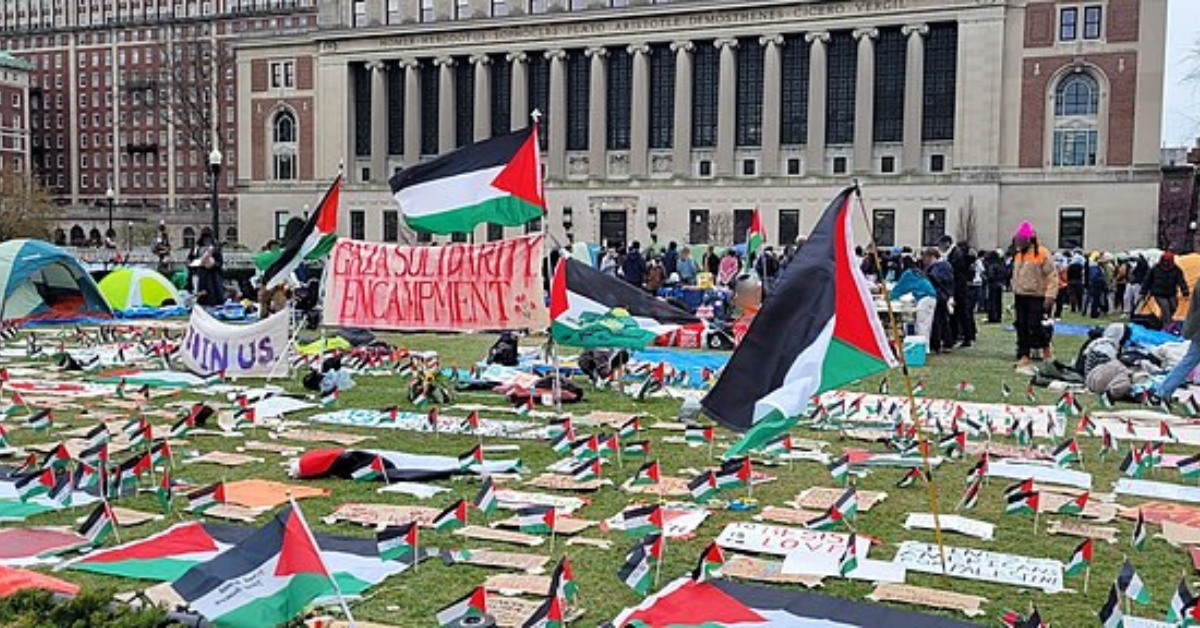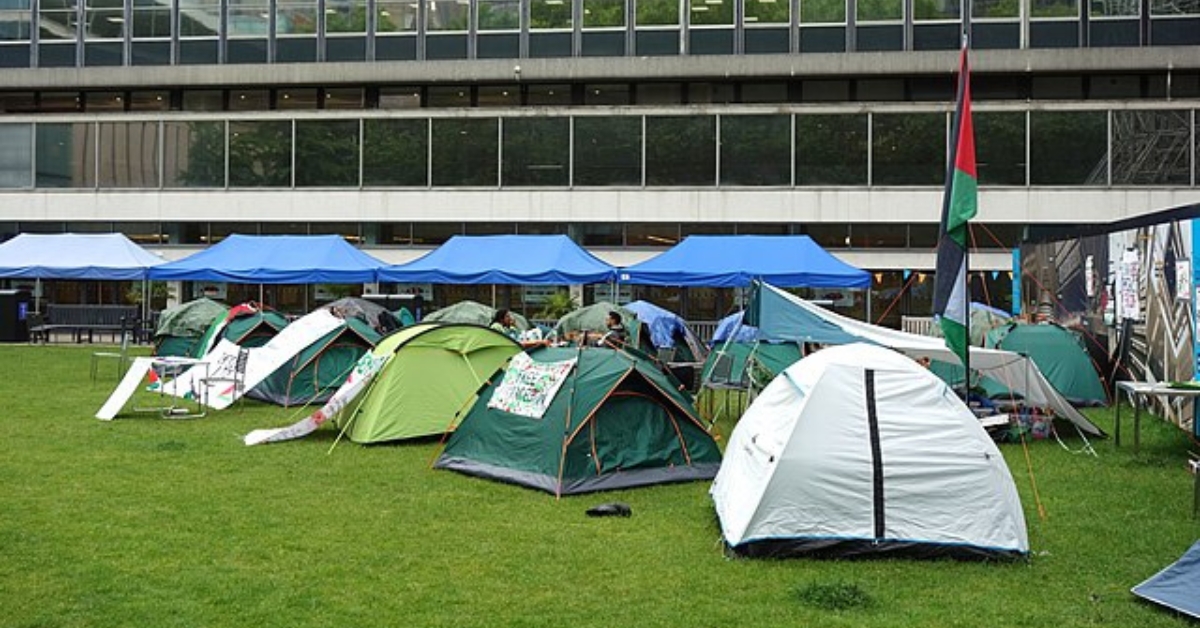
Anti-Israel Protests Return to Campus at Cornell University
On the first day of classes at Cornell University, a blatant act of anti-Israel vandalism not only shattered the physical facade of Day Hall but also underscored a disturbing escalation in campus violence. Early Monday, before dawn had even broken, vandals smashed through the glass of a university building and scrawled messages that read “Blood is on your hands” and “Israel bombs and Cornell pays.”
This wasn’t just random destruction; it was a calculated message, a violent expression from those claiming to make their voices heard in the only way they believe the administration will notice—by destroying property. The perpetrators, in a chilling statement to the Cornell Daily Sun, declared their intent to disrupt what they describe as the university’s complicity in what they call a “fascist, classist, imperial machine.”
This act of vandalism at Cornell is not occurring in a vacuum. It comes at a time when Governor Kathy Hochul is convening meetings with university leaders across New York to beef up campus safety, reflecting a statewide concern over the rise in lawless protests that have often tipped into Antisemitism and violence. This meeting was prompted by a history of tepid responses from academic institutions that have seen their campuses become battlegrounds for political strife, leading to the resignation of several administrators under the glare of public scrutiny.
Cornell Must Stop Anti-Israel Protests Before They Begin
Cornell itself has been a hotbed for ongoing demonstrations, notably inflamed by the Gaza conflict and attacks by Hamas against Israel last October. The reaction has been polarized; some community members have expressed extreme viewpoints, with a history professor going so far as to describe Hamas’ terrorist attacks as “exhilarating” and “energizing”—comments that do nothing but fan the flames of Antisemitism.
It’s high time for institutions like Cornell to invest in more than just the superficial aspects of education and administration. It’s about safeguarding the values of discourse and safety. For far too long, the response to such incidents has been reactionary at best, and at worst, permissive, allowing a culture where the very principles of academic freedom and respectful debate are under siege.
The vandalism at Cornell marks a significant and unacceptable step beyond peaceful protest into outright aggression and property destruction. It is a reflection of a broader, more disturbing trend where educational institutions become arenas not just for learning, but for conflict. This should be a wake-up call: a call for a return to civility, a reinforcement of security, and a resolute stand against any form of violence or intimidation, whether it roots in ideological extremism or outright criminal behavior. As the academic year unfolds, it’s crucial that these bastions of learning do not become battlegrounds, and that they learn from the mistakes of last semester.














